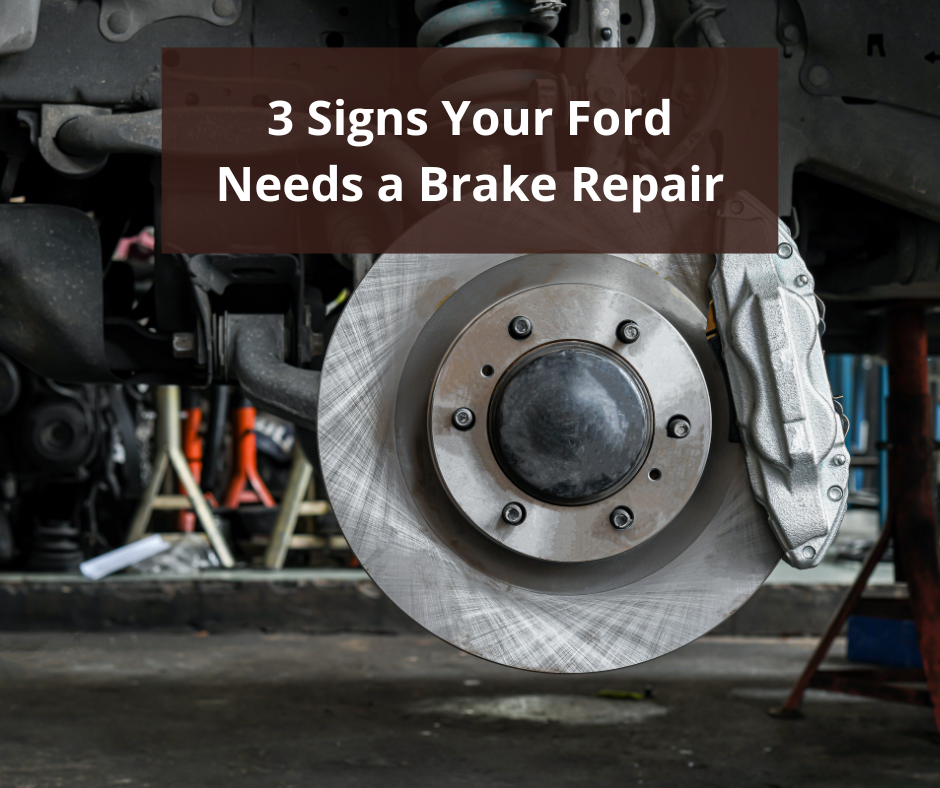
Your brakes are a vital part of your Ford’s safety system. They allow you to control your speed at any time. Brakes, like all mechanical systems, can suffer wear and damage, and you’ll need a brake repair. As your Ford dealer, we want you to know some signs that you need to come and see us for a repair.
Your Brakes Are Screeching
Ear piercing screeching from your brakes is a sign that your brake pads need to be replaced. Your brake pads fit into the brake calipers. When you apply the brakes, the calipers are forced against the wheel rotors. The friction material covering the pads generates friction against the rotors and brings your car to a stop. The friction material covering, however, does wear off.
Each time you use the brakes, part of the pad material covering is lost. When the material thickness drops to 1/4″ thick, it reveals a metal spike buried in the pad by the manufacturers. The next time you use the brakes, this metal spike will scratch the wheel rotors and produce a loud screeching sound. This is a warning that your pads are thin and need to be replaced.
Your Car Pulls to One Side
When you hit the brakes, your car should slow and stop. If your car pulls to one side, this is a sign that your braking system isn’t working on one of your wheels. As we saw above, the brake pads are pushed against the wheel rotors when you brake. The brake fluid in the system provides the hydraulic power that pushes the calipers against the rotors.
Two possible causes for a brake failure on one of your wheels are a jammed caliper or a blockage in the brake hose. A jammed caliper won’t engage when you use the brakes, and this prevents the wheel rotor from stopping immediately. A blockage in the brake hose will prevent the fluid from exerting the pressure needed to close the caliper against the wheel rotor.
Overheated Brake Fluid
Brake fluid generates hydraulic power, and its under constant high pressure. When you take your foot off the brake, the fluid is withdrawn into the brake fluid reservoir where it cools off. If you’re braking frequently, for example, you’re driving downhill, the brake fluid is kept in the hoses. The heat created by pressure in the system can cause the fluid to overheat.
If you smell a hot chemical smell, this could be overheating brake fluid. Call us ASAP, and our technicians will investigate the problem.
Bad brakes are dangerous. Call us at Fritts Ford, and our technicians will repair your brake problem.




